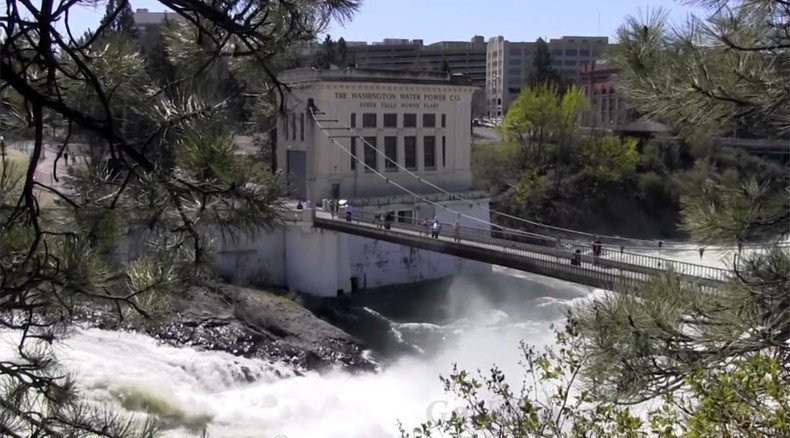Monsanto sued over PCB contamination of Spokane River in Washington state

Struggling with the pollution of the Spokane River, a town in the state of Washington is taking agrochemical giant Monsanto to court for selling chemicals that endanger human health and the environment, despite it allegedly having known of the hazard for decades.
The lawsuit, filed in a US District Court in Spokane, Washington, holds Monsanto accountable for pollutants flowing into the 111 miles (179 km) long Spokane River that stretches from northern Idaho to eastern Washington.
“Spokane filed a lawsuit to hold Monsanto Company responsible for PCB contamination that finds its way into the City’s stormwater that flows into the Spokane River,” Environmental Law Firms Baron & Budd and Gomez Trial Attorneys, representing Spokane said in a press release.
The city seeks “compensatory damages,” lawyer’s fees, interest and any other relief the court deems appropriate. The suit doesn’t specify the actual sum of damages being sought from the Iowa-based company.
Polychlorinated biphenyls (PCBs) chemical compounds were developed and made by Monsanto from the 1930s until 1979, when Congress banned them over danger they pose to humans and the environment.
Over the decades, PCBs were used in a number of Monsanto’s products that were incorporated into electrical equipment, paints, caulks, and other building materials.
“Monsanto knew then that PCBs were toxic and could not be contained as they readily escaped into the environment finding their way into bays, oceans, lakes, rivers, streams, soil, and air,” the legal team says.
Despite allegedly knowing the risk posed, Monsanto increased the production of PCBs and concealed this information to make profit, the law firm says. Because of such ill practice PCBs became a common environmental contaminant that affected all forms of life and are capable of wiping out entire fish habitats. In humans, PCB exposure is associated with a number of sicknesses, with cancer posing the worst threat.
The city of Spokane will now spend $300 million to keep PCBs from entering the river in coming years, Marlene Feist, the city’s utilities spokeswoman, told The Spokesman-Review. She said the suit is “long-term litigation.”
City of Spokane suing Monsanto for allegedly contaminating the Spokane River. #krem2http://t.co/4rsnKUpPX9pic.twitter.com/XsrJV9lMj8
— KREM 2 NEWS (@KREM2) August 3, 2015Feist noted that the Spokane River has elevated levels of PCBs, that has also been found in fish and wildlife. The city is currently trying to meet a 2017 federal deadline to stop pollution from entering the river.
In order to proceed with the clean-up, the Washington State Department of Ecology already began reducing PCBs at their sources in the watershed, and adding more levels of treatment at its water treatment plant.
“No company should be allowed to contaminate the environment and rely upon taxpayers to clean up the mess,” Attorney Scott Summy, a shareholder at Baron & Budd, P.C., one of two firms representing Spokane in the lawsuit said. “Monsanto, one of the most sophisticated chemical companies in the world, knew decades ago that PCBs were a significant contamination threat. And yet the company was concerned more with continuing profits than with protecting the public.”
“The City will incur significant costs to remove PCBs from stormwater and wastewater effluent flowing into the Spokane River, costs that should not be borne by the City or by its taxpayers but by the company that knew its product would cause this contamination,” Summy’s co-counsel, Attorney John Fiske, of Gomez Trial Attorneys, agreed.
READ MORE: San Diego sues Monsanto for bay pollution & persistent contamination
Monsanto replied in a statement, saying that they are reviewing the lawsuit and its allegations.
“Monsanto is not responsible for the costs alleged in this matter,” Charla Lord, a spokeswoman with the company told The Spokesman-Review.
“PCBs sold at the time were a lawful and useful product that was then incorporated by third parties into other useful products,” Lord said. “If improper disposal or other improper uses created the necessity for clean-up costs, then these other third parties would bear responsibility for these costs.”
In the past PCB pollution cases had been opened against Monsanto in San Diego and San Jose, California, and Westport, Massachusetts












